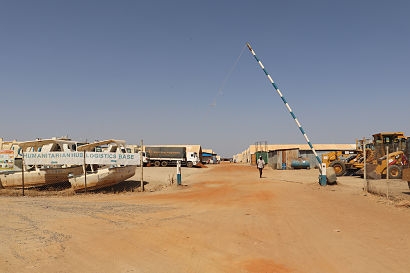
The Hub is managed by IOM and hosts nearly 300 workers from 34 organisations involved in humanitarian projects in the nearby Protection of Civilians Site and in Malakal town, as well as in the Upper Nile regionThe renewable energy provided will reduce the Hub’s diesel fuel usage by 80-90 percent.
“We are excited to have secured our first hybrid solar plant project” said CEO of Scatec Solar, Raymond Carlsen. “This is a key milestone for us as it marks the start of our cooperation with the United Nations. We look forward to providing the sites with clean energy and at the same time contributing to significant costs savings for the UN operations”.
Scatec Solar has developed the project through its partnership with the Norwegian company Kube Energy. Scatec Solar will design, supply, install and operate a 700 kW capacity PV plant and a 1.6 MWh battery energy storage system that will be connected to the existing diesel generators. The hybrid installation will reduce the diesel consumption for the IOM-managed Humanitarian Hub by 80- 90 percent, contributing to significant reductions in costs and CO2 emissions.
In addition, Scatec Solar has signed agreements with another international agency for two hybrid solar plants with a total capacity of 2.25 MW at two other locations in South Sudan.
The projects are scheduled to be completed during fourth quarter 2019 and the solar systems can easily be increased to supply power to local communities or to other off-takers at a later stage. Scatec Solar sees a large potential for future cooperation to support the United Nations in reducing their dependence on fossil fuel.
For additional information:

